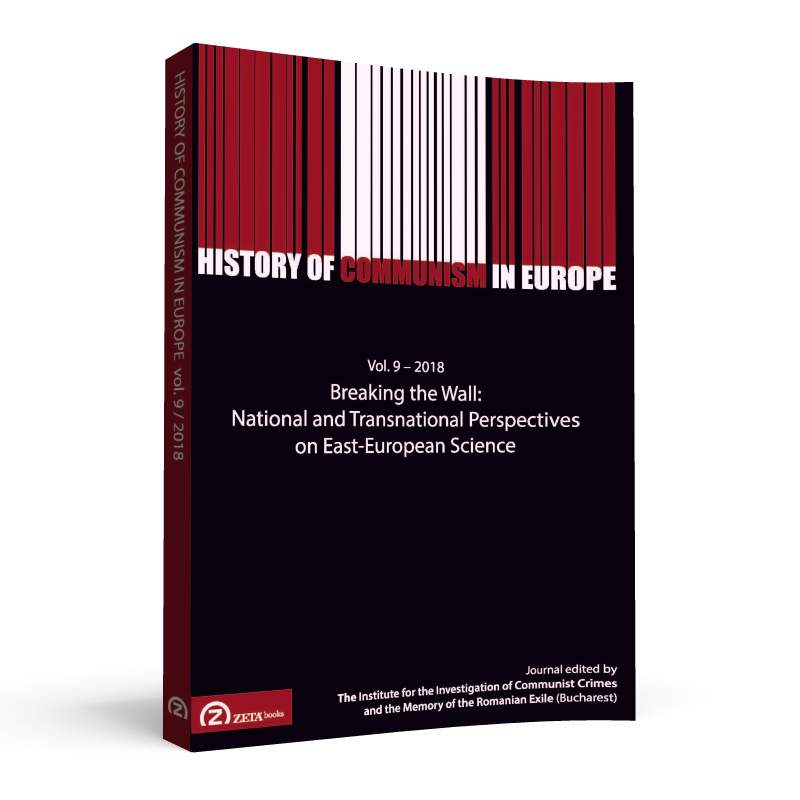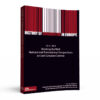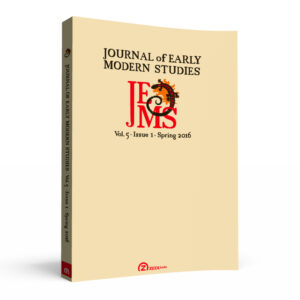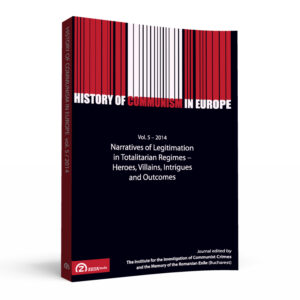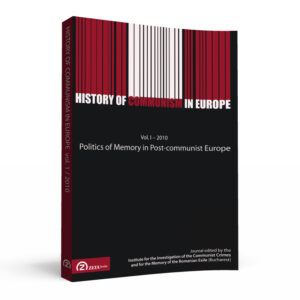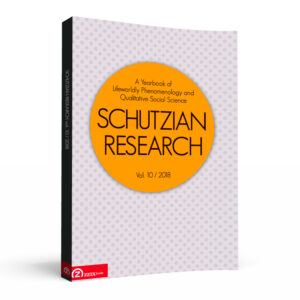TABLE OF CONTENTS
ARGUMENT – Dalia BÁTHORY
Abstract: The general post-communist perspective of historiography on the Cold War era is that the world was divided into two blocs, so different and isolated from one another that there was no interaction between them whatsoever. As revisionist literature is expanding, the uncovered data indicates a far more complex reality, with a dynamic East-West exchange of goods, money, information, human resources, and technology, be it formal or informal, official or underground, institutional or personal. The current volume History of Communism in Europe: Breaking the Wall: National and Transnational Perspectives on East-European Science tries to confer more detail to this perspective, by bringing together research papers that focus on the history of science during the Cold War. The articles cover a wide range of subjects, from biology to philosophy and from espionage to medical practices, all sharing an ideological context that continuously impacted and molded the professional relations among scholars from both sides of the Iron Curtain.
I. SCIENCE BEFORE, AFTER AND BEYOND THE IRON CURTAIN
William DEJONG LAMBERT: “The Difference between No. 1 1928 and No. 1 1930 is Great Indeed”. Theodosius Dobzhansky’s Self-Imposed Exile from Soviet Russia – the “Dr. Zhivago Period”
Abstract: This article chronicles the correspondence between Theodosius Dobzhansky (1900-1975) and his colleagues in the USSR in the years following his arrival in the United States on what was to have been a one-year fellowship working in the laboratory of T.H. Morgan at Columbia University. These letters chronicle a period during which Dobzhansky not only realized the enormous potential of Drosophila genetics for unlocking the secrets of evolution, but also that continuing this research would require finding a way to remain in the United States longer than either the Soviet Academy of Sciences, or the Rockefeller Foundation, would allow. Dobzhansky’s exchanges during this period with mentors such as Yuri Filipchenko and Nikolai Vavilov, as well as fellow students and colleagues such as Nikolai Medvedev, highlight the precarious game Dobzhansky played as he attempted to appear eager to return to his homeland, while secretly maneuvering to delay it. By the time it was over Filipchenko would die an early death of meningitis and Vavilov—who had originally been urging Dobzhansky to return and contribute to development of genetics in Russia—would now advise him to remain in the USA. Dobzhansky was nearly forced to return to the USSR after a routine trip to Canada to renew his visa, an outcome that would surely have resulted in imprisonment or worse. In the end he was allowed to stay, however Dobzhansky’s defection was so resented by the Soviet regime that even decades later he would remain an “un-person” in his homeland, whose name and contributions were never officially acknowledged during his lifetime, and his attempts at reconciliation were rejected.
Jean-Claude DUPONT: L’histoire médicale et politique du pavlovisme en Russie et en France: Fernand Lamaze et le cas de l’accouchement sans douleur
Abstract: La méthode psychoprophylactique d’accouchement sans douleur (MPP) se développe en URSS dans un contexte stalinien sur les principes de la médecine pavlovienne, définie officiellement lors de la « session pavlovienne » de 1950. En France, c’est la figure de Fernand Lamaze qui est associée à la promotion de l’accouchement sans douleur, après qu’il ait importé la MPP d’Union soviétique l’année suivante. D’abord soutenue par les organisations marxistes et le mouvement d’émancipation des femmes, elle sera ensuite contestée sous l’effet des transformations dans la gestion médicale de l’accouchement et des rivalités politiques de la guerre froide. L’article interroge les origines historiques, épistémologiques et politiques de la médecine pavlovienne. Il compare la réception du pavlovisme à l’Ouest et à l’Est en suivant le fil de l’histoire de l’accouchement sans douleur et les enjeux en France et en URSS d’une controverse dans laquelle médecine et politique s’entremêlent.
Miroslaw SIKORA: From Promising Agent to Suspicious Francophile. Professor Stefan Węgrzyn and His Contacts with Professor Jean Charles Gille through the Lens of the Polish (counter)Intelligence (1958-1976)
Abstract: This paper examines how the Polish communist intelligence service attempted to recruit professor Stefan Węgrzyn, who was a prominent specialist on automatic control and computer science in post-war Poland. Eventually, Węgrzyn’s refusal to cooperate with the Polish spy agency, together with his profound relationship with French scientist and servomechanism expert Jean Charles Gille, made them both targets of surveillance orchestrated by the communist security apparatus. In the broader context of human-intelligence studies, this case study involves the problem of moral ambiguity. We experience informative examples of scientists, who often – not only during the Cold War – have had to choose between commitment to the rules of the academic world, along with its openness and transparency on the one hand, and patriotism including an ethos of secrecy for the sake of the homeland’s prosperity, on the other hand.
Luciana JINGA: Science and Politics during the Cold War – The Controversial Case of Sexology in Communist Romania
Abstract: The paper investigates how formal/informal networks of scientists, while facilitating the scientific West-East transfer in the Cold War context, shaped the scientific field of sexology by imposing personal scientific credos, in a particular national context. The paper shows that in the Cold War context, sexual science was present in Communist Romania, but neither as imitation of the regional scholarship, nor as a simple reproduction of western advancements in the field. The post-war Romanian scholarship in the field of sexology was the result of scientific interests of Ștefan Milcu – long time party protégée and respected member of the international scientific community – and of its personal circle that included remarkable personalities such as Victor Săhleanu or Tudor Stoica. Presenting the public with information about sexual and reproductive functions, and sometimes even elaborated descriptions of sexual techniques, certainly was never meant to enhance the individual gratification or provoke any form of sexual revolution. The Romanian production of sex/ educational manuals and of sexology works was part of a state policy towards a better, stable, family life, aiming for collective and social happiness.
II. SCIENCE AS A TOOL OF SOFT POWER
Corina DOBOȘ: Swinging Statistics: Population Research and Political Construction in 20th Century Romania
Abstract: The present article proposes an examination of the disciplinary evolution of demographic research in Communist Romania, as a case study of the mutually constitutive, multifaceted relationship between science, politics, ideology and memory. My research tries to compensate for the lack of access to the archives of the central institutions for population research during Communism (the National Institute of Statistics and the National Commission of Demography), by combining published sources (mainly scientific works, but also histories of demography and personal memoirs), with different archival documents, mainly coming from personal funds of two population researchers (Sabin Manuilă and Ștefan Milcu), from the fund of the Central Commission for Planning, of the Chancellery of the Romanian Communist Party and from diplomatic archives.
I pay attention to the side of the story offered by the actors themselves, focusing on the way in which the legacy of interwar demography was assumed and invoked in different post-war accounts regarding the history of demographic discipline in Romania. By doing so, I seek to contribute to writing a history of science as a product of complex entanglements between the different factors that circumscribe the process of knowledge production within a larger social and political context: specific professional interests and institutional settings, subjective interpretations, ideological pressures and attempts of political control.
Irina NASTASĂ-MATEI: Academic Migration and Cultural Diplomacy during the Cold War. Humboldt Fellowships for Romania in the Context of Eastern Europe
Abstract: Romania was the first country in the Eastern bloc to initiate diplomatic relations with the Federal Republic of Germany. On January 31, 1967, the Embassy of the FRG was opened in Bucharest, Romania. In this context, which marked the intensification of the cultural exchange between the two countries, with special attention paid to the exchange of students and researchers, in this article I aim to tackle the situation of the Humboldt fellows from Romania during 1965-1989, as agents of knowledge transfer and actors of soft-power strategies between the two blocks.
III. PHYLOSOPHY FROM METAPHYSICS TO MATERIALISM
Cristian VASILE: The Institute of Philosophy in Communist Romania under the Regime of Gheorghiu-Dej, 1949-65
Abstract: This paper examines some aspects of the institutional history of post-war Romanian philosophy, with a special focus on the Institute of Philosophy of the Academy of People’s Republic of Romania. The aim of this article is to shed more light on the main aspects of philosophical research during cultural Stalinism, and to underline the inflexion points within Romanian “philosophical” writings between 1948 and 1965. I examined the lack of human resources and its impact on the emergence of Marxist-Leninist philosophy, as well as the main research topics studied at the Philosophy Section of the Institute of History and Philosophy and Institute of Philosophy especially in the 1950s. I focused also on the context of unmasking and purging of the “philosophical” front mainly in late 1950s, underlining the Agitprop fight against Revisionism and “bourgeois” influence in social sciences. The avatars of the philosophical field are analysed through the lens of professor’s Constantin Ionescu Gulian’s destiny as an important manager of the institutions producing philosophy during the aforementioned period.
Daniela MACI: The Status of Philosophy during the Communist Regime in Romania
Abstract:The text approaches the status of Romanian philosophy during the communist period from two points of view: a) that of speech: while a new philosophical vocabulary becomes official, the old one fades away; b) that of the communist educational system. My analysis will consider the first period (1950-1960) in which “the new philosophy” (Dialectical Materialism, DIAMAT) was disseminated in society, and the second period (1970-980) in which Marxism could not be reduced to DIAMAT. Are these periods subsumed to the universal ideology (DIAMAT) or not?
IV. BOOK REVIEW
Ana TEODORESCU: Miruna Runcanu, Teatru în diorame. Discursul criticii teatrale în comunism. Fluctuantul dezgheț 1956-1964 [Theater in Dioramas. Discourse in Theatre Criticism during Communism. The Fluctuating Thaw, 1956-1964], Tracus Arte, 2019, 341 p.
ISSN 2069-3192 (paperback)
ISSN 2069-3206 (electronic)
ISBN 978-606-697-110-2 (paperback)
ISBN 978-606-697-111-9 (ebook)

